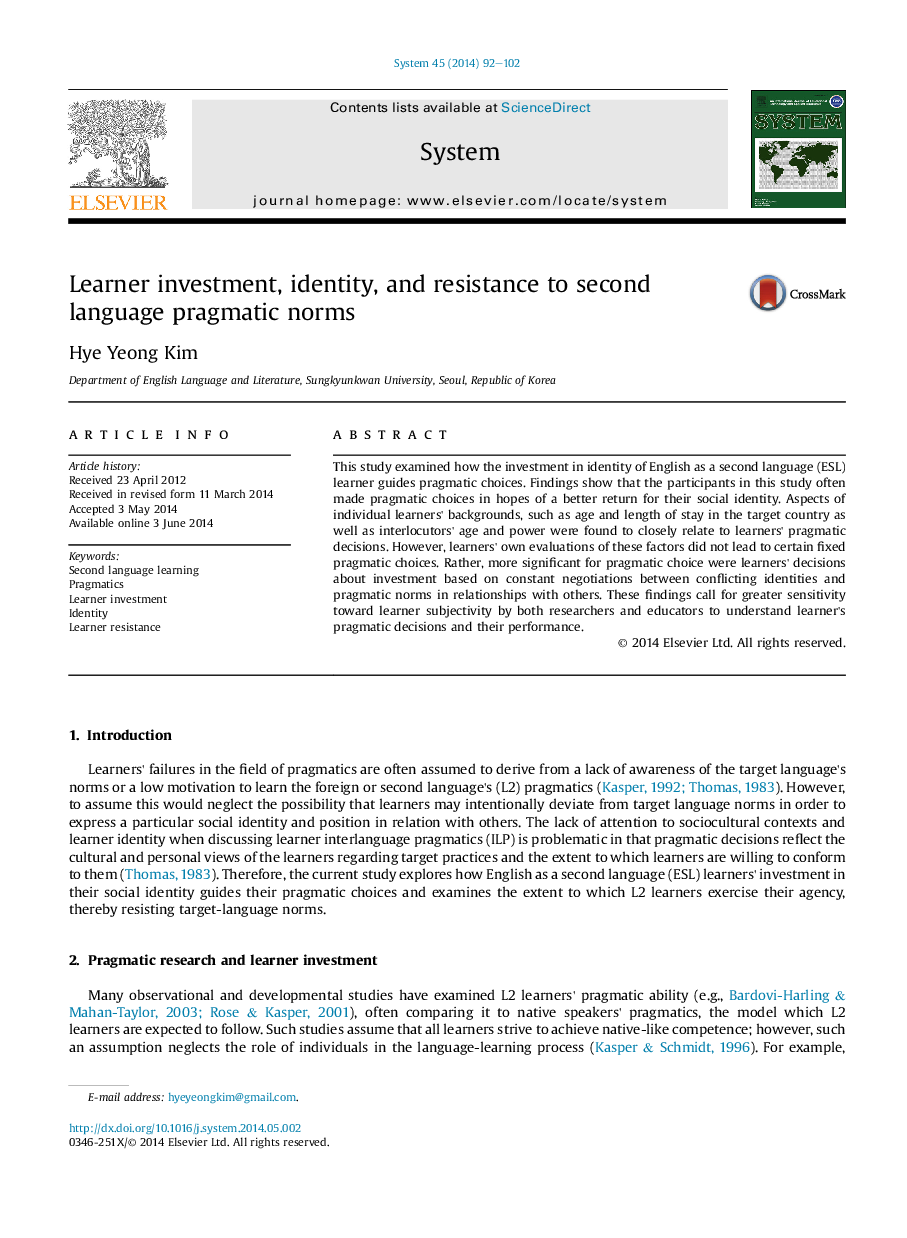| Article ID | Journal | Published Year | Pages | File Type |
|---|---|---|---|---|
| 373336 | System | 2014 | 11 Pages |
This study examined how the investment in identity of English as a second language (ESL) learner guides pragmatic choices. Findings show that the participants in this study often made pragmatic choices in hopes of a better return for their social identity. Aspects of individual learners' backgrounds, such as age and length of stay in the target country as well as interlocutors' age and power were found to closely relate to learners' pragmatic decisions. However, learners' own evaluations of these factors did not lead to certain fixed pragmatic choices. Rather, more significant for pragmatic choice were learners' decisions about investment based on constant negotiations between conflicting identities and pragmatic norms in relationships with others. These findings call for greater sensitivity toward learner subjectivity by both researchers and educators to understand learner's pragmatic decisions and their performance.
